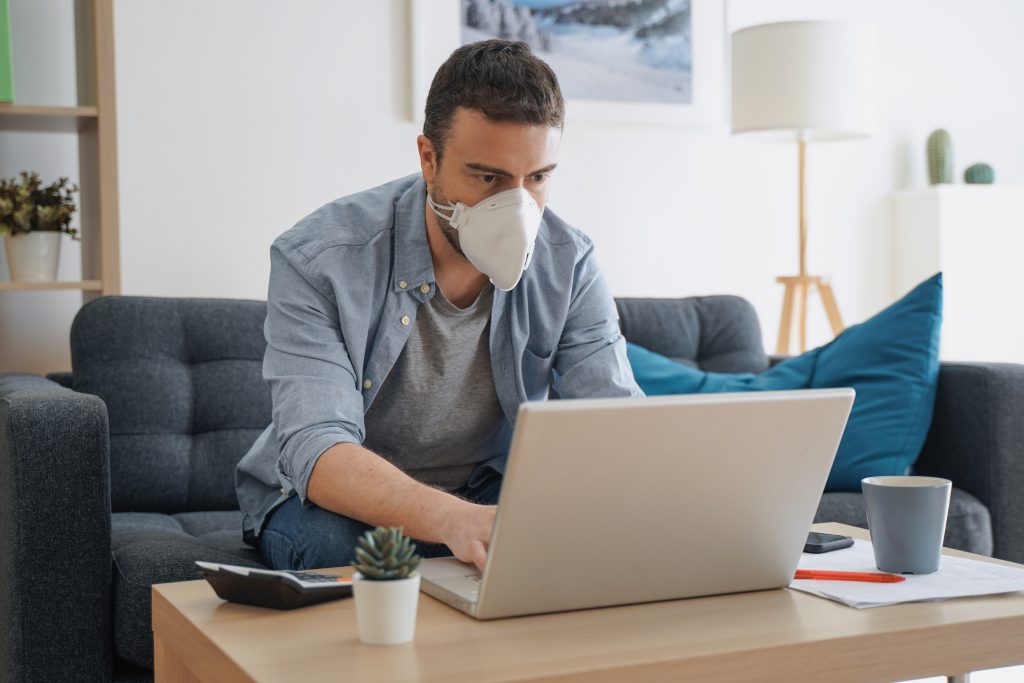 As Covid-19 cases increase across the UK and the country on lockdown, employees who are able work from home have been asked to do so in order to help slow the speed of the virus and protect the vulnerable.
As Covid-19 cases increase across the UK and the country on lockdown, employees who are able work from home have been asked to do so in order to help slow the speed of the virus and protect the vulnerable.
If you have never worked remotely before this can be a very confusing time. Whether you are a newbie remote worker finding it a struggle to remain productive or a manager who has been tasked with ensuring employees remain engaged and focused, we have created a quick guide to help navigate working from home during the Coronavirus pandemic. As the situation is changing daily we will continue to update this guide as the situation develops further.
So how can you continue to work effectively during this difficult time?
Setting up a designated workspace
No matter where you live, whether in a large house or a shared flat, it’s essential to set up a designated workspace. Working from the sofa may sound ideal for some, but creating a workspace in some shape or form will mean you will be more creative. A desk in a separate room with natural light is ideal however your living space may not allow for that, so at least setting up your laptop on an uncluttered kitchen table or counter top may be the best option for you.
How to stay focused and engaged
Creating a structure for your day is essential when working remotely. Without a structure in place you might find it difficult to motivate yourself, or on the other side of the fence you may find yourself unable to stop working well into the evening. Stick to your normal office hours, tea and lunch breaks. It is important to keep the work/life balance even though you are at home 24 hours a day. Another tip, as simple as this may sound, is to get dressed in the morning. The simple act of getting up at the usual time, showered and dressed will make you more productive and ready to start working straight away.
Collaborating and communicating with colleagues
Although it could be easy to use email to communicate with your team, picking up the phone or having a video call is an important way to stay engaged and productive. Not having the small interactions you are used to everyday with your colleagues will take its toll and you will begin to feel more isolated. So pick up the phone and check in with your colleagues.
Keep your virtual meetings professional
While virtual meetings have certainly become increasingly common, face-to-face discussions are usually considered more effective. As this is not possible during the current Coronavirus pandemic, it’s important to ensure your virtual connections are just as productive. Here are some practical tips to help keep your virtual meetings professional.
- Use a laptop or desktop computer and not your smartphone for your virtual meetings, and test the technology ahead of time.
- Set up your laptop and webcam in a quiet area of the house with a neutral background or wall behind you. Soft furnishings and carpet can ensure better audio.
- Set up strong but soft lighting if possible, dim lighting will look very unprofessional.
- Dress for the meeting, it’s unlikely you would go to an important meeting wearing a t-shirt so put on something that’s at least smart-casual.
In addition to this simple guide to working from home during the pandemic we have created some quick Q&A’s on the Coronavirus. The more accurate information you have the less stressed you will feel during this difficult time.
- How does Coronavirus spread?
According to the NHS, as this is a new illness not all the facts are in on exactly how the virus spreads. “We do not know exactly how coronavirus spreads from person to person. Similar viruses are spread in cough droplets.’
- What are the symptoms of coronavirus?
According to the NHS Direct website coronavirus symptoms include:
– A high temperature – this means you feel hot to touch on your chest or back (you do not need to measure your temperature)
– A new, continuous cough – this means coughing a lot for more than an hour, or 3 or more coughing episodes in 24 hours (if you usually have a cough, it may be worse than usual)
- How can we stop coronavirus spreading?
The current advice from the UK government and the NHS is to stay at home and self-isolate as much as possible to stop the spread of Coronavirus. Washing hands with soap and water for at least 20 seconds, using antibacterial hand sanitiser, covering your mouth if you cough or sneeze with a tissue and then immediately disposing of it, and keeping a distance of at least 2 metres from other people are ways to stop the spread of the infection.
- Where to get accurate updates on Covid-19
You can get up to the minute updates on the Coronavirus from the World Health Organisation (WHO). The WHO has also set up WhatsApp and Facebook alerts that you can sign up to.
Read through the NHS guide on Coronavirus that is being updated regularly.
The UK.GOV site provides up to the minute information on the Coronavirus.
The BBC also provides the latest news on the Covid-19 pandemic.
We wish you all well during this unprecedented time for the United Kingdom and the globe.
